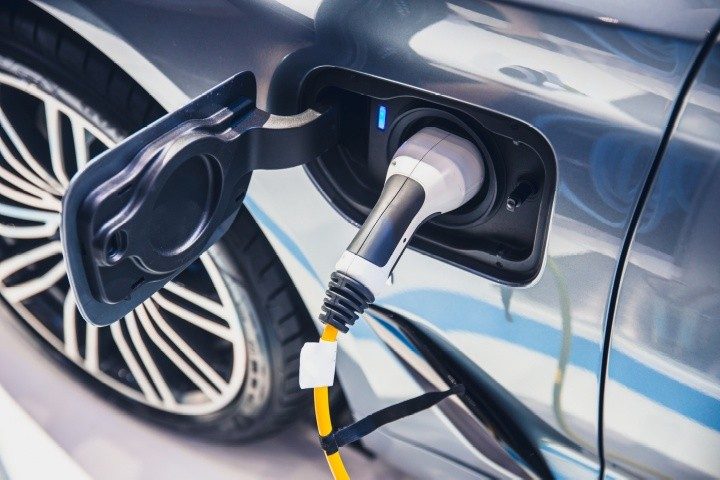
Wyoming State lawmakers, wanting to protect a state economy largely fueled by gas and oil, submitted a bill as a joint resolution this week expressing support for phasing out the sale of new electric vehicles (EVs) in Wyoming by 2035.
The anti-EV bill is sponsored by Republican State Senator Jim Anderson and is supported by Senators Brian Boner, Ed Cooper, and Dan Dockstader, as well as State Representatives Donald Burkhart and Bill Henderson, also Republicans.
Praising Wyoming’s valued oil and gas industries, the resolution noted that “the oil and gas industry in Wyoming has created countless jobs and has contributed revenues to the state of Wyoming throughout the state’s history…. Since its invention, the gas-powered vehicle has enabled the state’s industries and businesses to engage in commerce and transport goods and resources more efficiently throughout the country.”
The resolution was a satirical “shot across the bow” at states such as California that are phasing out gas-powered cars. Anderson told Fox Business on Monday, “We are countering what California and Oregon have started with stopping sales of new petroleum vehicles.”
Senator Anderson shared his concerns in the resolution text, stating that “the batteries used in electric vehicles contain critical minerals whose domestic supply is limited and at risk for disruption.” He added, “Critical minerals used in electric batteries are not easily recyclable or disposable, meaning that municipal landfills in Wyoming and elsewhere will be required to develop practices to dispose of these minerals in a safe and responsible manner.”
While EVs are touted as “clean” or “green” vehicles with no emissions, the dirty truth that hasn’t escaped the notice of the sponsors of the bill in Wyoming is that EV batteries create pollution and harm the environment, from their production to their eventual end of life or recycling process.
As OSVehicle reported on EV battery production, “According to the United Nations, lithium mining consumes up to 65% of the water in the region. When a Cobalt mining site is exposed to air and water, sulfuric acid is produced. Electric cars emit 1.3 to 2 times as much greenhouse gas as internal-combustion vehicles.”
As for recycling these toxic batteries, OSVehicle shared that “approximately 5% of lithium batteries are recycled, which is lower than the 99% recycled in the United States for lead batteries. Lithium batteries are commonly found in landfills, where hazardous materials can leak into the soil and groundwater.”
Aware of the need to recycle EV batteries, the Department of Energy has allocated $74 million in funding to support 10 projects that will develop new technologies and processes to recycle and reuse batteries of electric vehicles.
The joint resolution on phasing out EVs also noted that with Wyoming’s wide-open spaces and greater distances between communities, there is a need for quite a bit more EV charging stations within the state and a concern about the required power generation to “sustain the misadventure of electric vehicles.” The federal government did approve Wyoming’s National Electric Vehicle Infrastructure Plan, but it only covers the EV charging infrastructure along its federally designated “alternative fuel corridors” of I-80, I-25, and I-90.
The bill reiterated that the “United States has consistently invested in the oil and gas industry to sustain gas-powered vehicles, and that investment has resulted in the continued employment of thousands of people in the oil and gas industry in Wyoming and throughout the country.” It noted that “fossil fuels, including oil and petroleum products, will continue to be vital for transporting goods and people across Wyoming and the United States for years to come.”
The bill’s sponsors were clearly driven by their common-sense acknowledgment that EVs will likely never be a good fit for the state of Wyoming, and that forcing the state to switch from gas-powered to electric vehicles will have a serious effect on the state’s economy and ability to efficiently engage in commerce.
Currently, the purchase of EVs is still permitted in the state, and most certainly will be for years to come. But if this resolution has any teeth, then, as stated by its sponsors, “phasing out the sale of new electric vehicles in Wyoming by 2035 will ensure the stability of Wyoming’s oil and gas industry and will help preserve the country’s critical minerals for vital purposes.”




